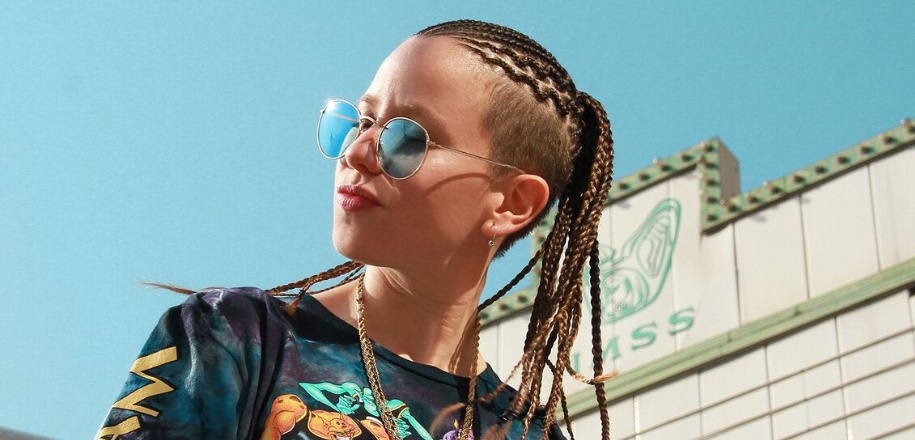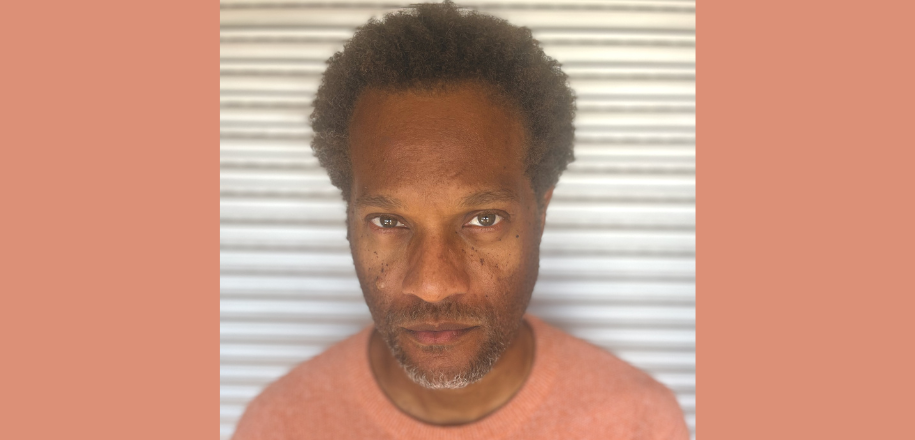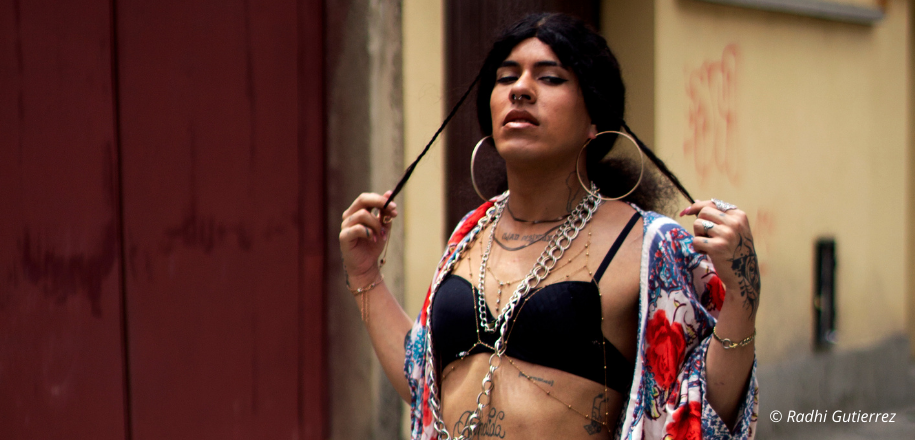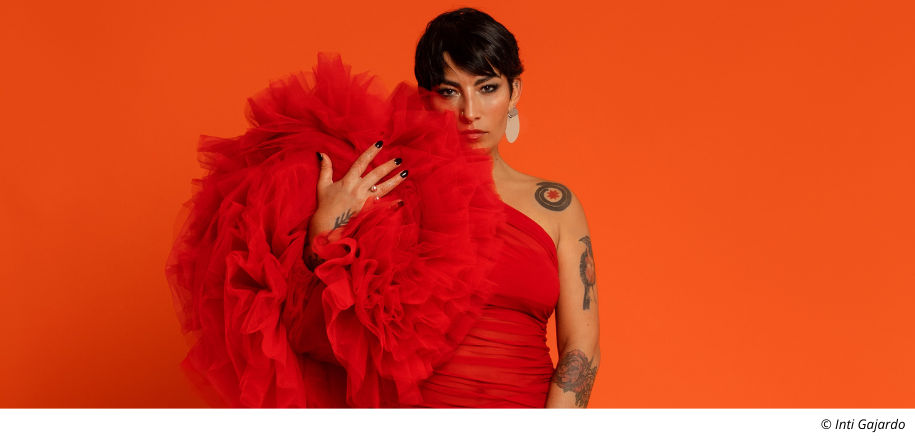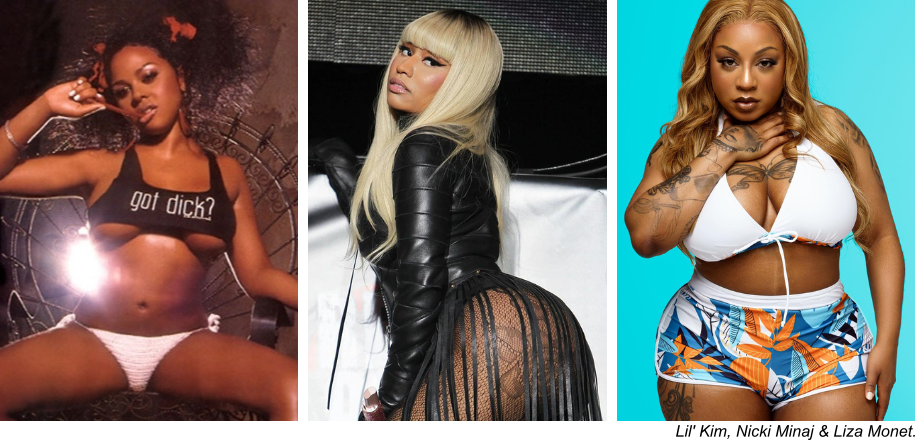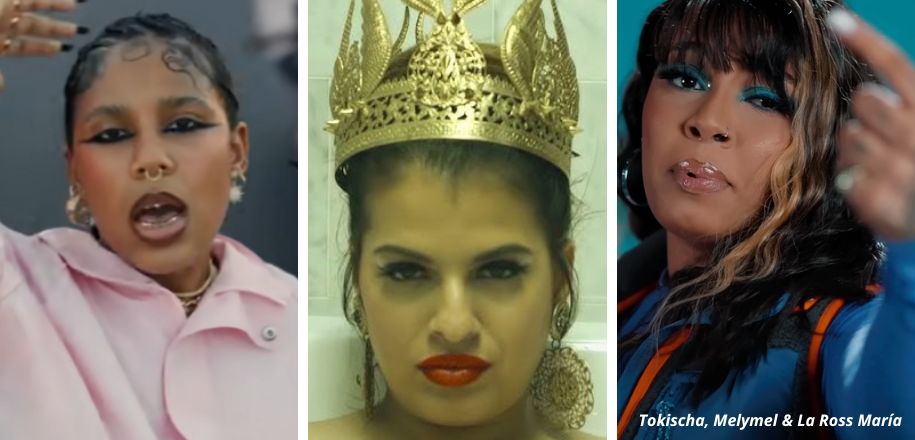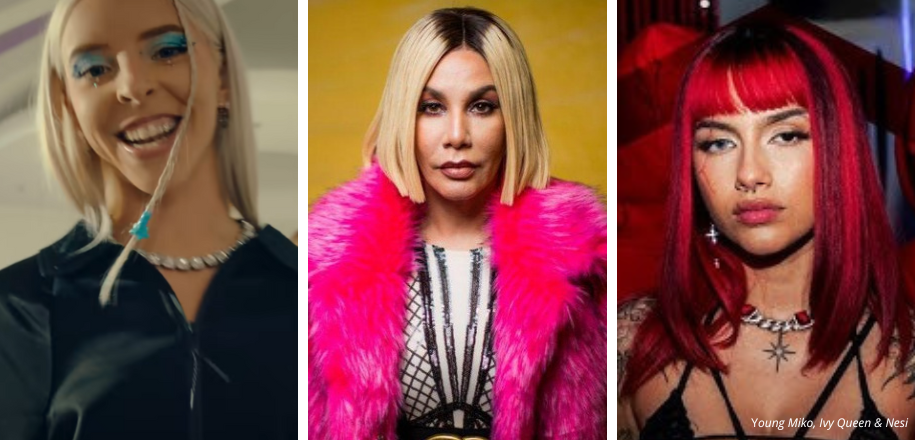When and how did you decide to become a rapper?
I had a childhood friend who also loved hip hop, we would listen to The Fugees and TLC together when we were like 8 or 9 years old… I’ve dreaming to become a rapper ever since when I knew there were other females doing it. But when I heard it in Spanish, it’s when it blew my mind away. I didn’t know there were also rappers from my hometown doing it big. Control Machete was a very big inspiration for me but their career life was short and after two albums they split, which led to a lot of underground movements in Monterrey.
Later when I was 17 or 18, I talked to some people at a hip hop forum and we met up to record some tracks together. It was my first time and they were very impressed. After that, it just became a passion to keep doing it.
You come from Monterrey, Mexico. What is the female hip hop scene like there?
I know there are some chicks doing cool shit like Chulas Artes, but I haven’t lived in Monterrey for 8 years so I’m kind of disconnected with the underground movement in my city that I once was a part of. But I know there are many other very talented female rappers all over Mexico. It’s just been growing a lot lately.
What do you think of the current situation of women in Mexico?
Times are still hard for women in Mexico and I guess all over the world. There’s a lot of “machismo” and people who think you shouldn’t rap because you’re a woman and therefore you can’t rap or whatever. Even though I have proved them wrong many times I still get attacked by a lot of men-haters on the Internet. But that machismo is everywhere, women are getting killed and abused every day and our government does little about it. It’s just really sad that the government is so corrupted.
Your last EP “Libre” is very political. Why is it important to you to rap about social issues such as police brutality or freedom of speech?
I didn’t do it by choice. I always rap about my environment and my culture. There are moments where it feels that you can celebrate life more than others. I think the power of the microphone is very important. We have this very powerful tool and we should speak about what’s going on around us. Police brutality is a serious thing in Mexico and America so I had to open this topic that a very few rappers wanna talk about in their lyrics. Students and people have the right to speak their mind and protest if necessary without getting killed by the police or the government because of it.
Can you tell us the story behind the track “Alquimista”?
I kinda got inspired by the book of Paulo Cohelo, even though I read it as a kid. The idea of looking for this mundane thing and turn it into gold, something precious, attracted me. For me that’s my art. The source is usually my pain and my struggle and I’m able to transform it into something beautiful to me and others. I just find it very amazing. It’s something I still can’t explain. I just get the inspiration from a Higher or Divine source.
Do you consider yourself a feminist? Why?
I consider myself pro-women. I encourage female power and talk about it a lot of my songs. If that’s feminism maybe I am. But definitely I’m not the kind of feminist that doesn’t shave or thinks all men are dumb.
Who are your female role models and why?
Frida Kahlo and Maria Felix. I think they were really badass. They were proud of their roots, they were beautiful and very talented. I mean, Frida Kahlo, with everything that she went through and how she kept making art, I think she is the original alquimista.
What are you listening to these days?
I listen to Kendrick Lamar a lot. I also love J Cole, Logic, Run the Jewels… I really liked the new Lil’ Mama mixtape and Missy Elliott who’s still killing it.
What are your upcoming projects?
I’ve just released a new EP and everybody can download it for free here.
What do you think about Madame Rap? What should be changed or improved?
I think it’s dope you made this space for us, thank you so much!
Find Niña Dioz on Bandcamp, Soundcloud and Facebook.

